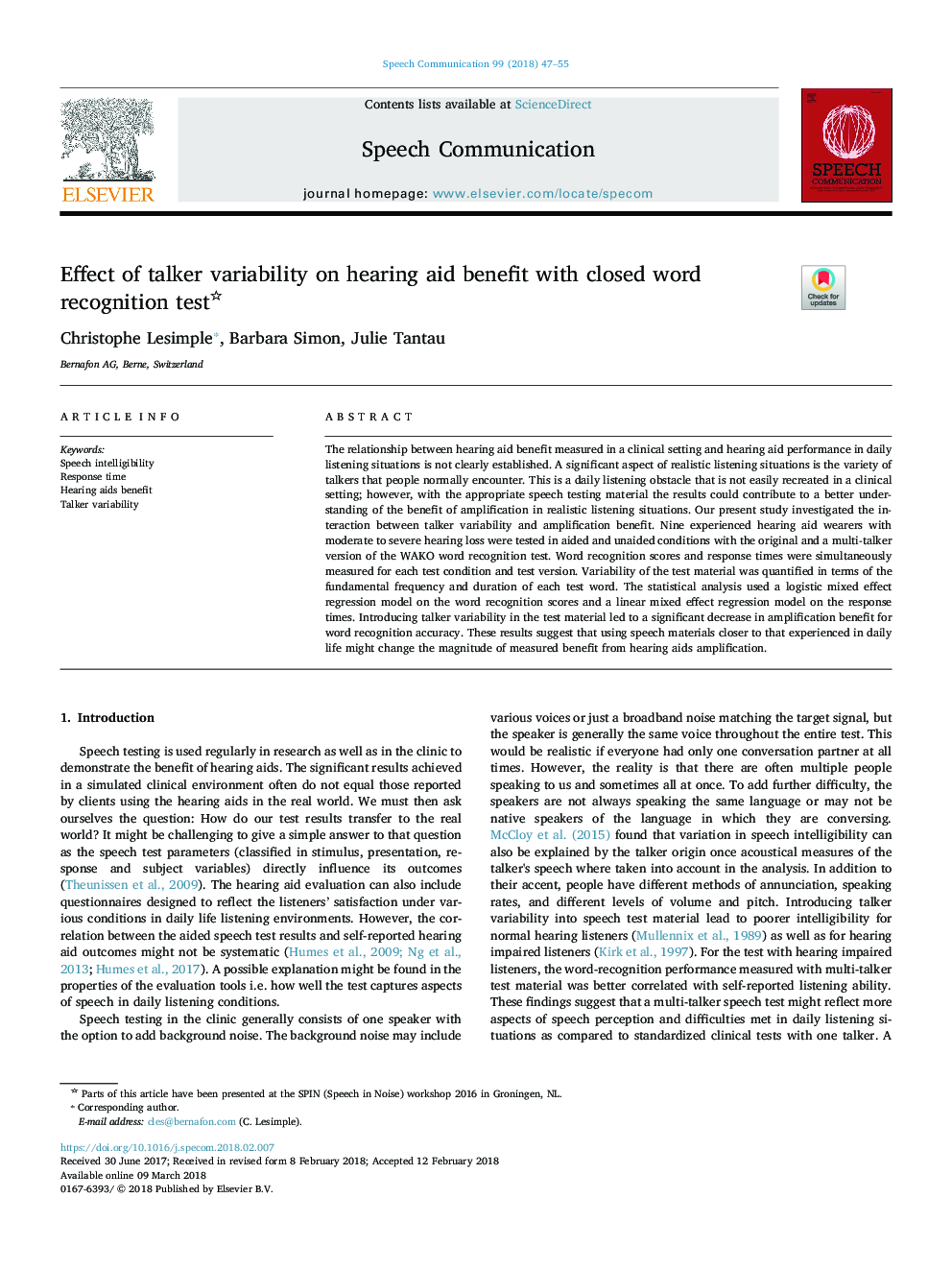| کد مقاله | کد نشریه | سال انتشار | مقاله انگلیسی | نسخه تمام متن |
|---|---|---|---|---|
| 6960604 | 1452001 | 2018 | 9 صفحه PDF | دانلود رایگان |
عنوان انگلیسی مقاله ISI
Effect of talker variability on hearing aid benefit with closed word recognition test
ترجمه فارسی عنوان
تأثیر متغیرهای گفتاری بر سودآوری شنوایی با آزمون تشخیص لغت بسته
دانلود مقاله + سفارش ترجمه
دانلود مقاله ISI انگلیسی
رایگان برای ایرانیان
کلمات کلیدی
هوش مصنوعی سخنرانی، زمان پاسخ، کمک های شنوایی سود می برند متغیر صحبت کننده،
موضوعات مرتبط
مهندسی و علوم پایه
مهندسی کامپیوتر
پردازش سیگنال
چکیده انگلیسی
The relationship between hearing aid benefit measured in a clinical setting and hearing aid performance in daily listening situations is not clearly established. A significant aspect of realistic listening situations is the variety of talkers that people normally encounter. This is a daily listening obstacle that is not easily recreated in a clinical setting; however, with the appropriate speech testing material the results could contribute to a better understanding of the benefit of amplification in realistic listening situations. Our present study investigated the interaction between talker variability and amplification benefit. Nine experienced hearing aid wearers with moderate to severe hearing loss were tested in aided and unaided conditions with the original and a multi-talker version of the WAKO word recognition test. Word recognition scores and response times were simultaneously measured for each test condition and test version. Variability of the test material was quantified in terms of the fundamental frequency and duration of each test word. The statistical analysis used a logistic mixed effect regression model on the word recognition scores and a linear mixed effect regression model on the response times. Introducing talker variability in the test material led to a significant decrease in amplification benefit for word recognition accuracy. These results suggest that using speech materials closer to that experienced in daily life might change the magnitude of measured benefit from hearing aids amplification.
ناشر
Database: Elsevier - ScienceDirect (ساینس دایرکت)
Journal: Speech Communication - Volume 99, May 2018, Pages 47-55
Journal: Speech Communication - Volume 99, May 2018, Pages 47-55
نویسندگان
Christophe Lesimple, Barbara Simon, Julie Tantau,
